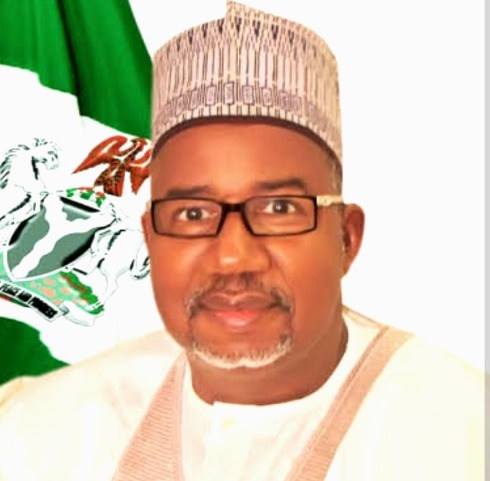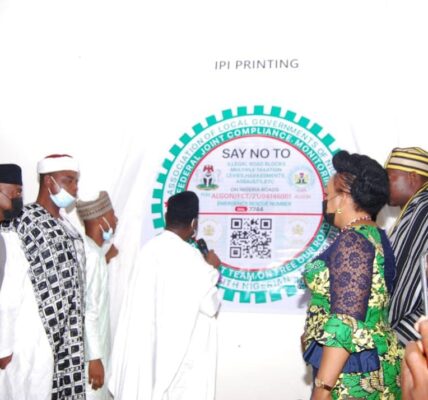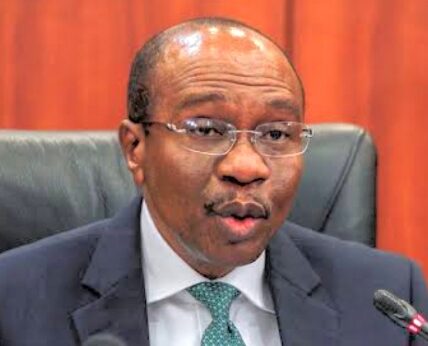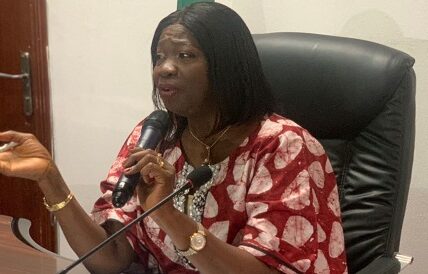This post has already been read 2984 times!
By Abdul-Azeez Suleiman
An election promise or campaign promise is a promise or guarantee made to the public by a candidate or political party that is trying to win an election.
All over the world, with sufficiently patient voters and candidates, there are many equilibria that characterize the range of credible promises to which candidates can commit. Campaign promises provide a mechanism for voters to select among multiple equilibria in a repeated game, much like a focal point.
In this sense, credible promises solve a coordination problem that arises naturally in the context of multi-principal agency problems, where the many principals must somehow converge on a common rule in order to effectively control the agent.
Campaign promises affect voters’ expectations about what policies will be chosen by an elected official, and they provide a benchmark for voters to link policy decisions with future re-election.
In Nigeria, political parties have grown highly unlikely to fulfill their election promises since inception of the current democratic dispensation in 1999, especially in states and local governments from where they extract the bulk of their winning votes.
As a consequence, voters in Nigeria often vote differently in future elections if a candidate promises to do something if elected, but subsequently reneges on that promise. Simply put, voters punish a candidate for reneging on campaign promises by voting him out of office.
Every four years, across Nigeria, voters are called upon to vote to either renew the mandates of incumbent fist term presidents, state governors and legislators, or to elect fresh leaders often on the basis of promises to provide corruption free beurocrat system, roads, water, health services, better education, protection to backward class, violence free society, respect for women, jobs for youth and many others.
And while few politicians try to fulfil these promises as per their capabilities when eventually elected, most others, particularly at states level, remain promises made and promises unkept.
For instance, for too long, a small group of elites in Bauchi state has reaped the rewards of government, while the people have borne the cost. This group flourished, but the people did not share in the wealth of the state.
Politicians prospered, but the jobs were left and businesses closed; the establishment protected itself, but not the citizens of the state. Their victories have never been the people’s victories. Their triumphs have not been the people’s triumphs, and while they celebrated with their families and friends, there was little to celebrate for struggling families all across the state.
That all changed when in 2019, Bauchi voters trusted Senator Bala Mohammed, a former Minister of the Federal Capital Territory, to lead the state through and out of its limitations, into a future in which they will live secure lives and pursue livelihoods in an environment where resources will be protected by leaders.
The election victory of Bala Mohammed was pre-eminently a victory for the entire people of Bauchi. For the first time, the bulk of the state votes overwhelmingly went to one candidate and one party, to comprehensively reject an administration and a party that had run its course.
The jubilations that followed Bala’s victory were not just over the victory of popular will over desperate attempts to subvert it. They were about the possibility that the people of the Bauchi state could look to a future without threats; that their young will get good education, acquire skills and get jobs; that corruption will be arrested, contained and eliminated.
With the election of Bala Mohammed, Bauchi celebrated an end of poor governance; to leadership that run away from reality, and to leaders who remembered the people only when they needed voters.
Bala Mohammed, Kauran Bauchi, was sworn in as the democratically elected executive governor of Bauchi state on 29 May, 2019, under the platform of the People’s Democratic Party (PDP).
And it is no exaggeration to say that the year 2019 represented the high point in activities in Bauchi that laid the foundations of the collapse of that citadel of poor governance, indifference, insensitivity and unprecedented plunder that characterized subsequent admininstrations in the state since 1999.
Elders, women and youth groups stepped up in a manner never seen in the state’s political history; elites closed ranks, except those whose personal wealth and personal ambition remained tied to the continuation of decay and destruction of the state and the people.
Christians and Muslims closed the religious divide, awakened by the burden of the shared legacy in the deteriorating standards of living as politicians fleeced the poor of resources to develop.
From every corner of the state, the poor, the young people and women rejected the tradition of lining up to receive handouts to abandon their future, and chose instead to install a leadership that will make them more secure and provide their children with a productive future.
Bala’s swearing-in in 2019 therefore had a very special meaning because it did not merely transferred power from one administration to another, or from one party to another, but also transferred power from a tiny group of elites and gave it back to the people of Bauchi.
Three years down the line, governor Bala Mohammed has recorded tremendous achievements in terms of socio-economic, infrastructural and political development of the state.
In his first 100 days, he flagged off road construction of about 90 kilometers spread across the state, worth about N5 billion and since then, on aggregate, no single day had passed without a project launched or completed in Bauchi state.
For instance, the abandoned CBN roundabout to railway roundabout road project was completed in addition to 58-kilometer road linking Yalwan Duguri, Badaran Dutse, Birim, Bajama, Kumbala, Kundak, Wurno and Burga communities of Tafawa Balewa and Alkaleri local governments; Sade to Akuyam in Misau local government as well as GRA Azare to old Kano road in Katagum local government area of the state.
Moreso, Raji quarters to NITEL road, Gombe to Maiduri bye-pass were all completed adding to the miracle of the road constructed from MudaLawal Market to Bakin Kura to Malam Goje.
In another giant breakthrough Bala embarked on the construction of 3 kilometer Gwam-gwam-gwam to Bakaro to Kafar Dumi road, 1.7 Kilometer Tambari Housing Estate to Sabon Kaura road, 370 Meter roads network at the newly constructed Hajj Camp.
Within just three years,Bala had completed 6.5 Kilometer Tafawa Balewa, Shira, Jama’are road; 11.6 Kilometer Boi-Tapshin road; 11.2 Kilometer Bogoro-Lusar-Malar road; 2.65 Bununu township roads; 2.5 Kilometer Sade township road; 25.5 Kilometer Udubo-Gamawa road and Warji-Gwaram road.
Other road projects include the 3 Kilometer Disina road and Disina township road; Azare township road; the 5 Kilometer Alkaleri-Gwaram-Gokaru road and Burga-Duguri road. These are not all! There are recently awarded ones, currently under construction and some of which have reached an appreciable stage.
It is now on record that Bauchi is the state with the biggest permanent hajj camp in Nigeria and the West African sub-region, equipped with befitting facilities.
EDUCATION
As a first step to improving the state’s educational viability, Governor Bala through his Commissioner of Education, Dr. Aliyu Tilde introduced digital attendance whereby fingerprint devices to monitor workers’ performance and improve conduct.
In his first year in office, Governor Bala flagged off the disbursement of five Hundred Thousand Naira to each of the 1,320 schools in five Local Government Areas of the state as Schools Improvement Project Grants, a World Bank-assisted project. He also provided 6.7 hectares of land for the construction of Northeast UBEC Model School in Bauchi.
Within the same period, Bauchi State Government secured the award of three million US Dollars for the implementation of Better Education Service Delivery for All, a federal government project
He then embarked on massive renovation of Primary, Junior and Senior Secondary Schools that were in dilapidated condition across the state such as the Baba Sidi Primary School, Dutsen Tanshi Primary School, GDSS Zannuwa, Dawaki Primary School, GDSS Kofar Wambai, Government Comprehensive Day Secondary School, GJSS Model Fadamar Mada among others.
In Dass Local Government, Kagadama (A); Bagel Primary School; Baden (B) Primary School; Bagel (B), Galadima; Darussalam (B) and Kagadama (B) Primary School are among the schools renovated.
Additionally, to ensure that women are not educationally lagged behind, women education centers in Kirfi, Katagum, Jama’are, Ningi, Dass and Misau local government areas, were renovated.
Similarly, renovation and construction of blocks of classrooms took place in various Primary Schools in Tafawa Balewa, Bogoro, Darazo, Gamawa, Tatagum, Ganjuwa, Misau, Dambam, Alkaleri, Toro, Kirfi, Warji, Shira, Zaki, Giade, Ningi and other local government areas in the state.
The Governor recently awarded scholarships to indigenous students from Bauchi state studying in tertiary institutions across the country.
HEALTH
On assumption, Bala sought a stronger and sustained collaboration with the World Health Organization and over 20 other International Development Partners and Donor Agencies working in the state resulting in the actualization of a robust infrastructure for polio eradication and immunization, fighting Tuberculosis, Leprosy and other diseases.
He has also renovated and completed the State’s College of Nursing and Midwifery. The College was built to stand the test of time, equipped with sophisticated facilities and necessary infrastructure for the smooth operations.
This is in addition to the renovation of 126 primary health care centers in bauchi, constructed 12 new world class hospitals and a primary health care center in Dorawar Dillalai, Bauchi, while a number of general hospitals across 6 local government areas are currently under renovation.
AGRICULTURE
In his food security drive, Bala launched an agricultural policy document covering key sub-sectors of agriculture such as irrigation development, quality supply, crop pest and disease control, commodity livestock and fisheries development.
To complement this, the governor is committing a huge sum of money to the procurement of farming needs including pesticides and enhanced seedlings which will yield more produce to the farmers.
On annual basis, the governor procures over 18,000 metric tonnes of assorted fertilizer for farming season and he has always directed the state fertiliser blending company to sell the commodity at a subsidised price and directly to the farmers to save them from the trouble of shylock marketers.
ECONOMY
To boost the state’s economic viability, the Governor created an enabling environment for private sector organizations to take advantages that exist on the global market for both unprocessed and semi-processed agricultural products abound in the State.
Additionally, Senator Bala, through Kaura Economic Empowerment Project (KEEP), procured hundreds of transportation vehicles and thousands of Keke Napep. This has greatly impacted positively on the economy and transportation industry in the state. Through KEEP, empowerment packages amounting to hundreds of millions of naira are distributed to business owners and many small-scale businesses have grown and blossomed.
HOUSING
To address the housing challenges of civil servants and low-income earners, Governor Bala immediately commissioned the construction of 2500 housing units across the 6 emirate councils of the state, among which included 30 units of 2-bedroom Bungalow, 20 units of 3-bedroom at Azare; construction of 600 units of 2-bedroom Bungalow and 400 units of 3-bedroom at Dungal, Bauchi.
Others are 120 units of 2-bedroom and 80 units of 3-bedroom Bungalow in Misau; construction of 21 units of 2-bedroom Bungalow and 14 units of 3-bedroom in Dass. Ningi and Jama’are were also not left out; in Ningi, the governor constructed 120 units of 2-bedroom and 80 units of 3-bedroom, while Jama’are secured 40 units of 2-bedroom and 28 units of 3-bedroom.
WATER SUPPLY
Bala Mohammed, in collaboration with the World Bank, executed a N20 billion water projects to boost water supply in Bauchi metroplis. Part of the projects was the distribution of a 150-kilometre pipeline within the Bauchi metropolitan, the laying of 1,000-millimetre diameter transmission mains from Gubi dam to Warinje reservoir and construction of seven million-litre reservoir at Buzaye Hill.
The project is completed 100 per cent and and was recently launched by President Muhammadu Buhari. The Managing Director of the State Water Corporation, Aminu Aliyu Gital put the number of beneficiaries at 707,000. This project meets the domestic, industrial, commercial and institutional requirements.
ELECTRICITY
The track record of Bala Mohammed receives nothing less than appreciation and approbation. The dream of people of Takanda village, Toro local government area; Sade in Darazo and Nasaru, Ningi local local government, of having power supply in their villages has come to reality with the coming the workaholic governor Bala.
Moreso, there was extension of electricity supply to Inkil, Mara Huta, Sabon Layi and Baraya Quarters in Bauchi as well as Maje Community in Ningi and Magama Gumau in Toro local government area. This has transformed living standard of the people of those areas from grass to grace.
Bala’s giant strides and inclusive style of leadership have so much impacted on Bauchi state so that to the people, what truly matters is not which party controls the government, but whether their government is controlled by the people.
May 2019 will be remembered as the day the people of Bauchi became the rulers of their state again. The forgotten men and women of Bauchi will be forgotten no longer.
Today, Bauchi thinks big and dreams even bigger as the people understand that a community is only living as long as it is striving. Bauchi will no longer accept politicians who are all talk and no action, constantly complaining but never doing anything about it. The time for empty talk is over and after Bala, they will not allow anyone to tell them that it cannot be done.







